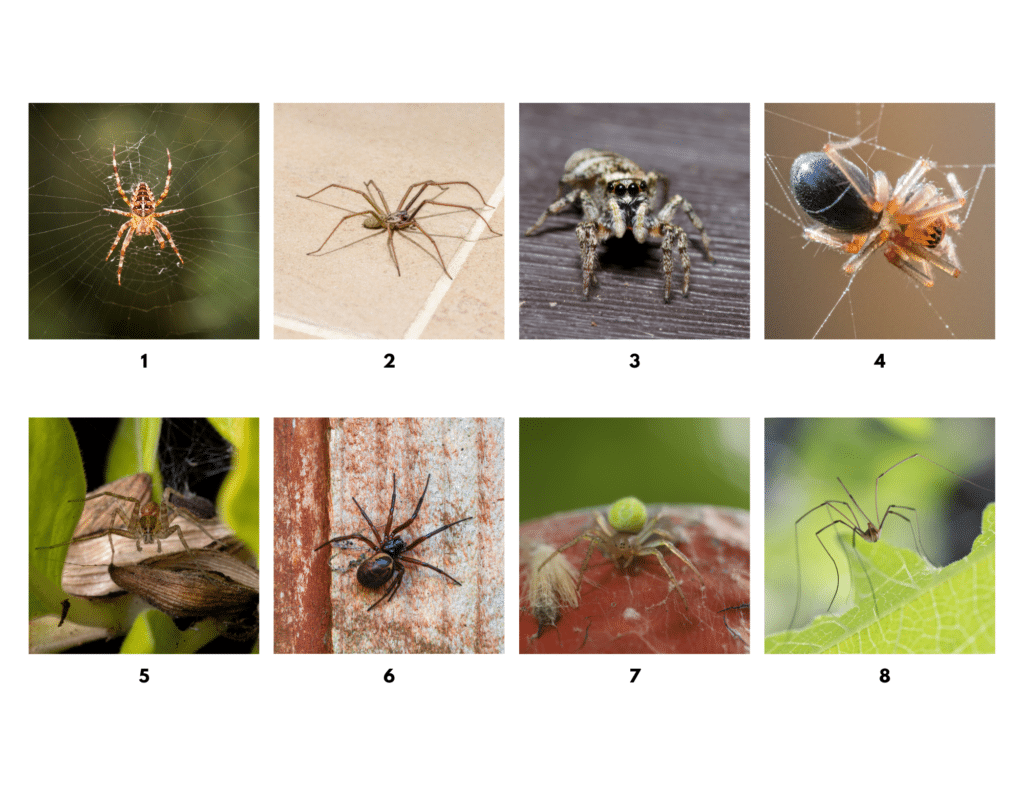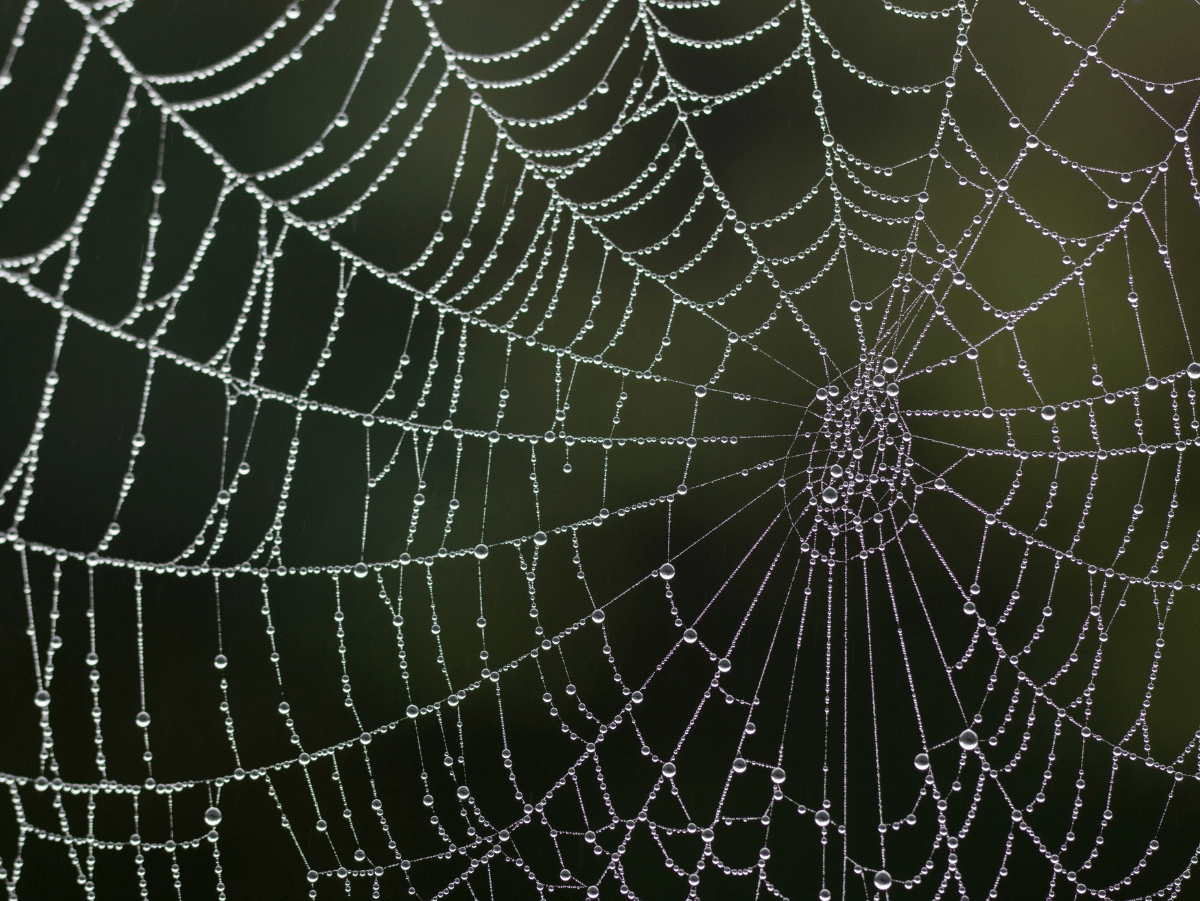Be Kind to Spiders Week is held during the first week of April and is dedicated to appreciating and raising awareness of these wonderful eight-legged creatures. Many people have a fear of spiders, and we want to help shift the perception and reduce irrational fears, while showing how vital they are to our ecosystem.
Why are spiders important?
Spiders play a vital role in maintaining our biodiversity by controlling insect populations, making them essential for a balanced ecosystem.
They can help manage large insect populations, eliminate invasive species and reduce the number of pests that threaten crops. Without spiders, the crops we rely on could be severely damaged. Spiders also contribute to pollination and aid in the decomposition of dead animals and plants. This creates fertile soil, which is essential for healthy crops. They also help to regulate other pest populations, such as mosquitoes, flies and moths, which can reduce the spread of diseases like malaria and dengue fever.
8 common spiders you are likely to see in the UK
Spiders are a common sight in the UK, but there’s no need to worry, they are not deadly! You may have seen some of these species before:

- Garden Spider (Araneus Diadematus) – A familiar sight from summer to early winter, known for its large, intricate webs.
- Giant House Spider (Tegenaria gigantea) – Often found indoors, especially in autumn, but prefers to stay hidden.
- Zebra Jumping Spider (Salticus scenicus) – A small but agile spider with distinctive black-and-white stripes.
- Money Spider (Linyphiidae family) – Tiny and harmless, often associated with good luck.
- Nursery Web Spider (Pisaura mirabilis) – Common in gardens, known for carrying its eggs in a silk sac.
- False Widow Spider (Steatoda nobilis) – The UK’s most venomous spider, but not dangerous to humans.
- Cucumber Spider (Araniella species) – A bright green, garden-dwelling spider that blends in with leaves.
- Cellar Spider (Pholcidae) – Often found in dark corners, with long, delicate legs. Also known as Daddy Long-Legs.
Most of the spiders you will come across prefer to stay out of sight, making their homes in gardens and hidden corners of houses. Depending on the season, you might notice more of these eight-legged visitors, but do not worry, they pose little threat to humans.
There’s no need to be afraid, none of the spiders in the UK have a deadly bite! While a few species can bite, the effects are usually mild and nothing to worry about. The false widow spider is the most venomous in the UK, but even its bite isn’t strong enough to cause serious harm. Despite its scary name, it’s far less dangerous than the black widow, which does not live in the UK. Rest assured, the spiders you encounter in the UK are more beneficial to your environment than harmful to you.
While you might not love sharing your space with them, there’s no need to fear these fascinating creatures.
5 fun facts about spiders!
- You can find spiders on every continent, except for Antarctica.
- There are over 50,000 species of spiders that have been recorded so far.
- Spiders have tiny paws called tarsi, which are part of their legs, they’re quite adorable.
- Spiders eat more insects annually than birds and bats combined.
- Some spiders look exactly like ants. In fact, there are around 100 species of spiders than mimic ants to avoid predators and to hunt easily.
Show some love for spiders!
Spiders may not be the most popular creatures, but they play a crucial role in our world. This Be Kind to Spiders Week, take a moment to appreciate these tiny pest controllers and the balance they bring to nature.
If you find a spider in your home and don’t want it there, remember there’s no need to harm it. Simply and gently guide it into a container and release it outside. Every creature has its place, and spiders deserve kindness too.
Small actions can help change perceptions, so next time you see a spider, remember it’s more friend than foe!

This was a really insightful read—well done!